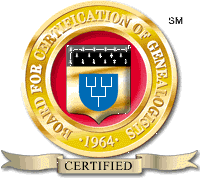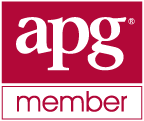I received this press release yesterday. I look forward to meeting the winner at the Southern California Genealogical Society's Jamboree this June 6-9th in Burbank, California.
Student Genealogy Grant Announced
February 5, 2013 – Do you know a young genealogist who could use $500 toward their family history education and free registration to the Southern California Genealogy Jamboree in June 2013?
The Suzanne Winsor Freeman Memorial Grant Committee is pleased to announce that applications are now being accepted for the 2013 Student Genealogy Grant. In addition, SCGS Jamboree will once again provide the recipient with free three-day registration.
Any genealogist who is between the ages of 18 and 25 and has attended school in the last 12 months is eligible to apply. The recipient must attend the 2013 SCGS Jamboree in Burbank, California to receive the award.
The $500 cash award was established in 2010 in memory of Suzanne Winsor Freeman, family historian and life-long volunteer, and an enthusiastic annual attendee at the SCGS Jamboree.
“The Freeman Student Genealogy Grant pays tribute to these interests by awarding the annual cash grant to a young genealogist attending the SCGS Jamboree, Southern California’s premiere regional genealogy conference,” notes Denise Levenick, committee chair and Freeman’s daughter.
“We are especially grateful to Jamboree for providing a three-day conference registration to the grant recipient,” she adds. “SCGS is truly a leader in conference organizations by encouraging youth involvement in genealogy through the popular Kids Camp program and now through the student grant project.”
Past recipients of the award include Elyse Doerflinger (Lomita, California), A.C. Ivory (Salt Lake City, Utah), and Anthony Ray (Palmdale, California).
Funding for the cash award is provided by the family grant program; Jamboree registration is provided by the conference.
Complete details and application materials are available at The Family Curator, Suzanne Freeman Student Genealogy Grant < http://www.thefamilycurator.com/swf-grant/>. Follow Grant News at www.thefamilycurator.com. Application deadline is 18 March 2013 midnight PST.
For More Information Contact: Denise Levenick, swfgrant@gmail.com.
Suzanne Winsor Freeman Obituary: TheFamilyCurator.com
06 February 2013
05 February 2013
Genealogical Research Institute of Pittsburg Registration Opens February 7th!
Another great genealogy event that I am involved with is the Genealogical Research Institute of Pittsburgh. Learn, eat, and sleep in air-conditioned comfort on the beautiful campus of LaRoche College in Pittsburgh from July 21-26, 2013.
Choose from six courses and get energized and educated in this setting. I tell you about this now because online registration opens this Thursday, February 7th at noon Eastern time!
I am coordinator of the Intermediate Course: Tools for Digging Deeper. You may learn more about this course here and here.
Choose from six courses and get energized and educated in this setting. I tell you about this now because online registration opens this Thursday, February 7th at noon Eastern time!
I am coordinator of the Intermediate Course: Tools for Digging Deeper. You may learn more about this course here and here.
04 February 2013
FGS 2013 Genealogy Conference Week
As one of the Co-Chairs of the Federation of Genealogical Societies August 2013 Conference, I am delighted to share an overview of the week with you. Please join your fellow family historians as we "Journey through Generations."
Monday, August 19
Tuesday, August 20
Monday, August 19
- Allen County Public Library Genealogy Center open 9 a.m.-9 p.m.
Tuesday, August 20
- Librarian’s Day (all day)
- Q&A panel and genealogy consultations in the afternoon, 2-5 p.m.
- Onsite registration begins, 3-7 p.m. (additional hours each day – see conference website)
01 February 2013
Is that genealogy record abstract correct?
 I was recently in Salt Lake City where I researched at the Family History Library. One of the main tasks was to locate a baptismal record. I had the church-generated abstract on a pre-printed form with details presumably taken directly from the church record book. Yet I needed to verify the information.
I was recently in Salt Lake City where I researched at the Family History Library. One of the main tasks was to locate a baptismal record. I had the church-generated abstract on a pre-printed form with details presumably taken directly from the church record book. Yet I needed to verify the information. The microfilmed church record book showed that there were no errors on the abstract but it left out much of what was on the page in the record book. What was missing? The entry directly above this one was for the infant’s sibling. Then there was the notation for the infant in question that the father of these two children had been killed just three days before and it mentioned he was the husband of the mother and where they had been married. I then located the death record for the father/husband who had a common name. With that possible date I was able to find that the death was recorded in another county.
Great results but we still need to be careful of what was found on the microfilm. Is it actually the original record book? Whether it is in “original” form, on microfilm, or a digitized image you need to look at it with a critical eye. In other words, is it the original or one that someone copied either for easier reading or to preserve a disintegrating volume? Check to see if there is a title page giving the date the volume was published. Are there event dates that precede that publication date? If there is no such title page, then look for other clues. Is the entire record book written in the same handwriting. Of course, it could span a brief number of years and could logically hold the same handwriting for all events.
The names in the event descriptions such as christenings should not be in alphabetical order. The church members did not show up in alpha order to get christened, married, or buried. Is the handwriting the same throughout the record book that spans from 1822-1910? It is unlikely that one pastor or church member entering the events was around for all that time period.
Read the church history booklet or a county history entry to help determine if a smaller congregation was a mission or satellite church of a larger one. When the smaller one grew and had its own pastor, were the records pertaining to its members hand copied from the larger church’s books? I found one church record book that stated “people baptized when they had no pastor.” Were all the pages in the record book typed? For those 1845 events, too? Typewriters did not come into common usage until the later 1870s.
Another comment found in a church record book is “perhaps the date is 1870 it is blurred in the original but comes 1st under the year 1871.” [That is a direct transcription, dates and all!)]
Think about the church records you have consulted – what idiosyncrasies have you found?
Subscribe to:
Posts (Atom)


+of+Bill+Feb+4+one.jpg)



